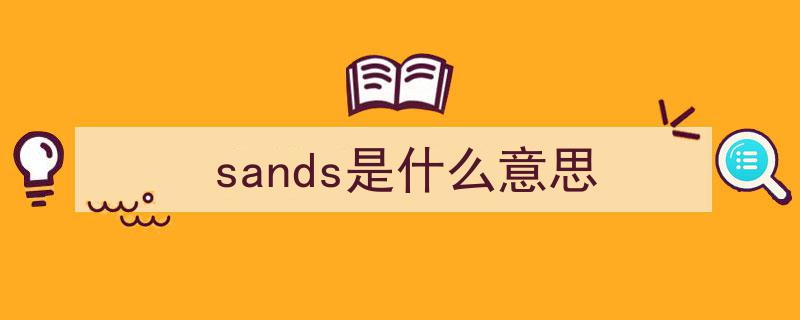英语名词复数变化解析,词义演变与用法总结

在英语中,名词变为复数形式时,词义发生变化的情况相对较少,但以下是一些常见的例子:
1. "单数与复数同义":
- Sheep (一头羊) - Sheep (多只羊)
- Fish (一条鱼) - Fish (多条鱼)
- Deer (一头鹿) - Deer (多只鹿)
2. "单数与复数有细微差别":
- Child (一个孩子) - Children (孩子们,通常指多个孩子,有时也有“孩子”的意味)
- Man (一个男人) - Men (男人,通常指多个男人,有时也有“人类”的意味)
- Woman (一个女人) - Women (女人,通常指多个女人,有时也有“女性”的意味)
3. "单数与复数词义完全不同":
- Foot (一只脚) - Feet (脚,复数形式通常指“脚”的总称,不特指某一只)
- Tooth (一颗牙) - Teeth (牙齿,复数形式通常指“牙齿”的总称,不特指某一颗)
- Mouse (一只老鼠) - Mice (老鼠,复数形式指多只老鼠)
4. "单数与复数词义相反":
- Hen (一只母鸡) - Hens (母鸡,复数形式通常指多只母鸡)
- Rooster
相关内容:
在英语中,许多名词的复数形式不仅仅是单数形式的简单叠加,而是会引发词义的根本性改变。这些变化可能涉及词性转换(如从具体到抽象)、语义扩展(如从个体到集合),甚至完全不同的含义。(这篇只是总结了常见的,欢迎留言补充新的)
一、复数形式改变核心词义(单复数异义)
单数形式 | 复数形式 | 单数含义 | 复数含义 | 例句对比 |
air | airs | 空气 | 高傲的态度 | The air is fresh. vs. She puts on airs. |
arm | arms | 手臂 | 武器 | He broke his arm. vs. Arms trade. |
ash | ashes | 灰烬 | 骨灰 | The fire left ash. vs. His ashes were scattered. |
authority | authorities | 权威 | 当局(政府机构) | He speaks with authority. vs. The authorities arrested him. |
brain | brains | 大脑 | 智力、聪明人 | The brain controls the body. vs. She’s the brains of the operation. |
cloth | clothes | 布料 | 衣服 | This cloth is soft. vs. She bought new clothes. |
color | colors | 颜色 | 旗帜(尤指军旗) | Blue is my favorite color. vs. The soldiers saluted the colors. |
compass | compasses | 指南针 | 圆规 | Use a compass to navigate. vs. The math set includes compasses. |
custom | customs | 习俗 | 海关 | Local custom is important. vs. He works at customs. |
damage | damages | 损害 | 赔偿金 | The storm caused damage. vs. He paid $10,000 in damages. |
force | forces | 力量 | 军队 | The force of the impact was strong. vs. The armed forces were deployed. |
glass | glasses | 玻璃 | 眼镜 | The window is made of glass. vs. She wears glasses. |
good | goods | 好的(形容词) | 货物 | She is a good person. vs. The goods were delivered. |
ground | grounds | 地面 | 理由 / 庄园 | He fell to the ground. vs. She had grounds for complaint. |
letter | letters | 信件 / 字母 | 文学(广义) | I received a letter. vs. He is a man of letters. |
manner | manners | 方式 | 礼貌 | Do it in a proper manner. vs. Mind your manners. |
minute | minutes | 分钟 | 会议记录 | Wait a minute. vs. Take the minutes of the meeting. |
pain | pains | 疼痛 | 努力 | He felt pain. vs. She took great pains to succeed. |
paper | papers | 纸张 | 文件 / 报纸 | Write on this paper. vs. Sign these papers. |
quarter | quarters | 四分之一 | 住所 / 军营 | A quarter of the pie. vs. Living quarters. |
return | returns | 返回 | 利润 / 报表 | His return was unexpected. vs. Tax returns are due. |
sand | sands | 沙子 | 沙滩 / 时间流逝(诗) | The sand is hot. vs. The sands of time. |
spirit | spirits | 精神 | 酒精饮品 / 情绪 | Team spirit is high. vs. He drinks spirits. |
water | waters | 水 | 水域(海洋 / 河流) | Drink water. vs. International waters. |
work | works | 工作 | 工厂 / 著作 | Hard work pays off. vs. Shakespeare’s works. |
二、复数形式导致词义扩展或抽象化
有些名词的复数形式不仅改变词义,还使词义更抽象或更广泛:
单数形式 | 复数形式 | 单数含义 | 复数含义 | 例句对比 |
advice | advices(罕见) | 建议 | 正式通知(商业/法律) | Take my advice. vs. Legal advices were exchanged. |
content | contents | 内容(抽象) | 目录 / 所含物 | The content is interesting. vs. Check the table of contents. |
experience | experiences | 经验(不可数) | 经历(可数) | She has experience. vs. He shared his travel experiences. |
hair | hairs | 头发(整体) | 几根头发 | Her hair is long. vs. There are two hairs on your shirt. |
people | peoples | 人们 | 民族 | Many people attended. vs. Indigenous peoples of the world. |
time | times | 时间 | 时代 / 次数 | Time flies. vs. Ancient times. / Three times. |
三、复数形式导致词性变化(名词→其他词类)
少数名词的复数形式甚至可以改变词性,如变成形容词或副词:
单数形式 | 复数形式 | 单数词性 | 复数词性 & 含义 | 例句 |
mean | means | 形容词(卑鄙的) | 名词(方法 / 财富) | He’s mean. vs. Find a means to solve it. |
moral | morals | 形容词(道德的) | 名词(道德准则) | A moral decision. vs. He has no morals. |
particular | particulars | 形容词(特定的) | 名词(细节) | A particular case. vs. Check the particulars. |
四、特殊注意事项
- 某些复数形式仅用于特定语境
- "waters"(水域)→ territorial waters(领海)
- "sands"(沙滩 / 时间)→ the sands of the desert / the sands of time
- "skies"(天空,诗化)→ under sunny skies
2. 某些名词复数形式保留单数含义,但用法不同
- "fish"(鱼)→ "fishes"(多种鱼类,科学用语)
- "fruit"(水果)→ "fruits"(多种水果,强调种类)
3. 不可数名词的“伪复数”
- "informations"(错误,应为information)
- "furnitures"(错误,应为furniture)
总结
英语名词复数形式的意义变化可分为:
- 词义完全改变(如 air → airs)
- 词义扩展或抽象化(如 people → peoples)
- 词性变化(如 mean → means)
- 特定语境下的复数用法(如 waters, sands)